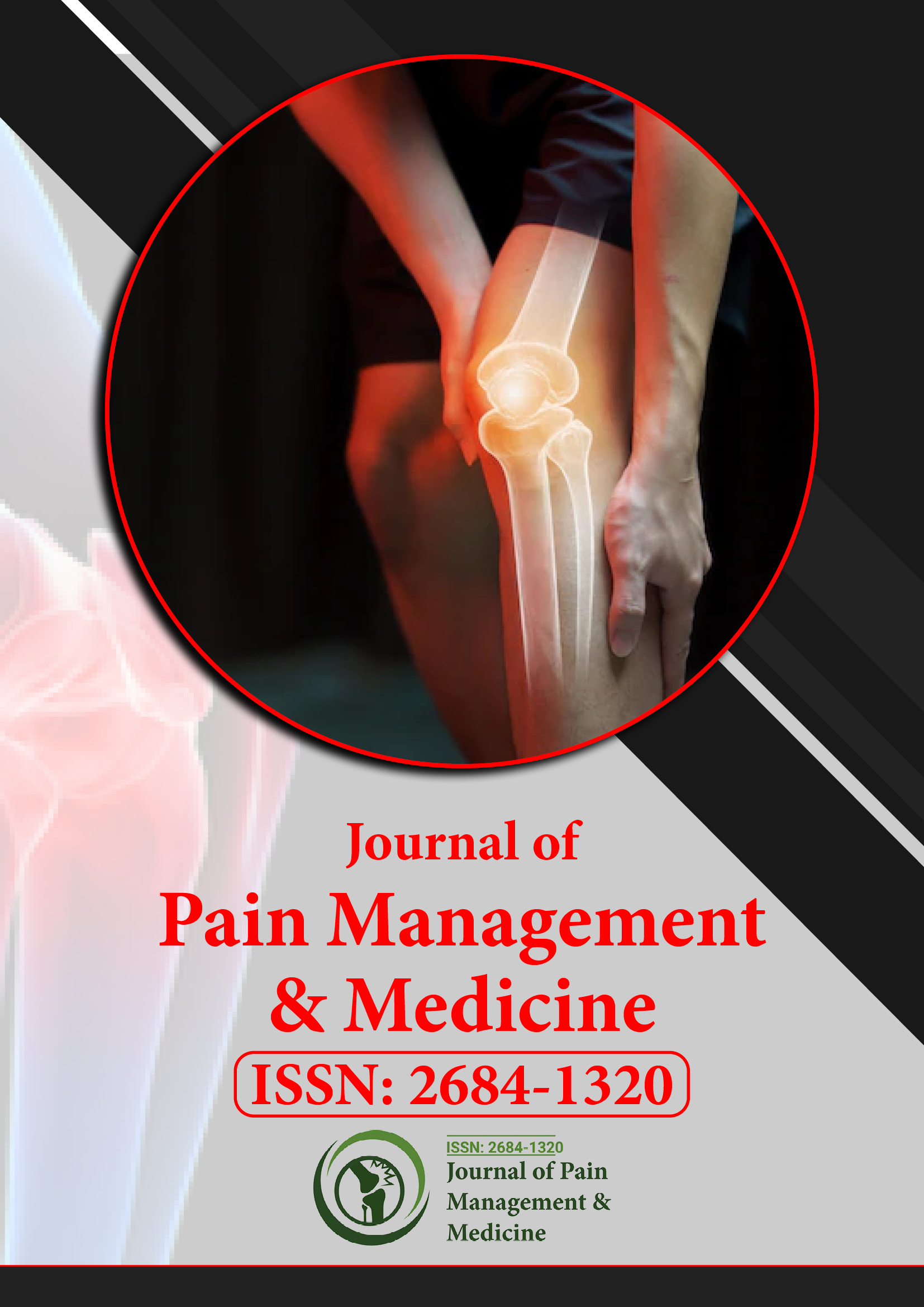Indexed In
- RefSeek
- Hamdard University
- EBSCO A-Z
- Publons
- Euro Pub
- Google Scholar
- Quality Open Access Market
Useful Links
Share This Page
Journal Flyer

Open Access Journals
- Agri and Aquaculture
- Biochemistry
- Bioinformatics & Systems Biology
- Business & Management
- Chemistry
- Clinical Sciences
- Engineering
- Food & Nutrition
- General Science
- Genetics & Molecular Biology
- Immunology & Microbiology
- Medical Sciences
- Neuroscience & Psychology
- Nursing & Health Care
- Pharmaceutical Sciences
Opinion Article - (2023) Volume 9, Issue 1
Effects of Chronic Pain and its Symptoms
Schrepf Gallop*Received: 14-Jan-2023, Manuscript No. JPMME-23-20839; Editor assigned: 16-Jan-2023, Pre QC No. JPMME-23-20839 (PQ); Reviewed: 30-Jan-2023, QC No. JPMME-23-20839; Revised: 06-Feb-2023, Manuscript No. JPMME-23-20839 (R); Published: 16-Feb-2023, DOI: 10.35248/2684-1320.23.9.198
Description
Chronic pain is a serious medical condition that affects millions of people around the world. It is complicated and multifaceted disorders that can be difficult to diagnose, manage, and characterize. Chronic pain can started from any part of the body, including the brain and spinal cord. It is often difficult to treat. According to epidemiological studies, 8-11.2% of people in various countries suffer from chronic pain symptoms. Depending on whether the pain is caused by tissue damage or neuropathic, various non-opioid medications are initially recommended to treat chronic pain.
Psychological treatments such as cognitive behavioral therapy and commitment therapy may help people with chronic pain improve their quality of life. Chronic pain is described as any pain that lasts an additional period than normal healing time of an injury or illness. Chronic pain, in compare to acute pain, which is a normal and required response to tissue damage, provides no protective function and can have a significant impact on an individual's quality of life. Opioid treatment may benefit some people with chronic pain while affecting the other. People with non-cancer pain who have not been helped by nonopioid medicines might be recommended to try opioids if there is no history of drug abuse or mental illness.
Causes of chronic pain
Chronic pain can have a wide range of causes, including injuries, illnesses, surgeries, and medical conditions such as arthritis, fibromyalgia, and multiple sclerosis. It can also be caused by psychological factors such as stress, anxiety symptoms, and depression. The mechanisms underlying chronic pain are complicated and vary from person to person. Researchers believe that chronic pain may be caused by changes in the nervous system, such as the development of neuropathic pain due to nerve damage or alterations in pain processing in the central nervous system.
Effects of chronic pain
The effects of chronic pain can be far-reaching, affecting every aspect of an individual's life, including their physical, emotional, and social well-being. Chronic pain can lead to fatigue, sleep disturbances, mood disorders, and decreased mobility, resulting in decreased overall quality of life and productivity.
Managing chronic pain
Managing chronic pain is a difficult and complex procedure that requires a multidisciplinary approach. Treatment techniques can include pharmacological interventions, such as analgesics, antidepressants, and anticonvulsants, as well as nonpharmacological interventions, such as physical therapy, cognitive-behavioral therapy, and mindfulness-based stress reduction.
Opioids, Non-Steroidal Anti-Inflammatory Drugs (NSAIDs), and antidepressants are some of the medications are used in pharmacological interventions for chronic pain management. While these drugs can be effective in managing pain, they also transmit serious health risks, including addiction, dependence, and overdose. As a result, their utilization has to be carefully controlled and managed.
Non-pharmacological interventions, such as physical therapy and cognitive-behavioral therapy, focus on improving physical function, reducing pain, and improving emotional well-being. These interventions can be effective in managing chronic pain and improving overall quality of life. Mindfulness-based stress reduction is also a novel technique to managing chronic pain, helping individuals to develop mindfulness skills that can help in pain management and overall well-being.
Chronic pain is a major public health condition that affects millions of people around the world. Recognizing the causes and significance of chronic pain is essential for developing effective management techniques. To effectively manage chronic pain is a multidisciplinary approach that includes both pharmacological and non-pharmacological interventions is required. People can improve the quality of life for people with chronic pain and reduce the impact of painful disease.
Citation: Gallop S (2023) Effects of Chronic Pain and its Symptoms. J Pain Manage Med.9:198.
Copyright: © 2023 Gallop S. This is an open access article distributed under the terms of the Creative Commons Attribution License, which permits unrestricted use, distribution, and reproduction in any medium, provided the original author and source are credited.

